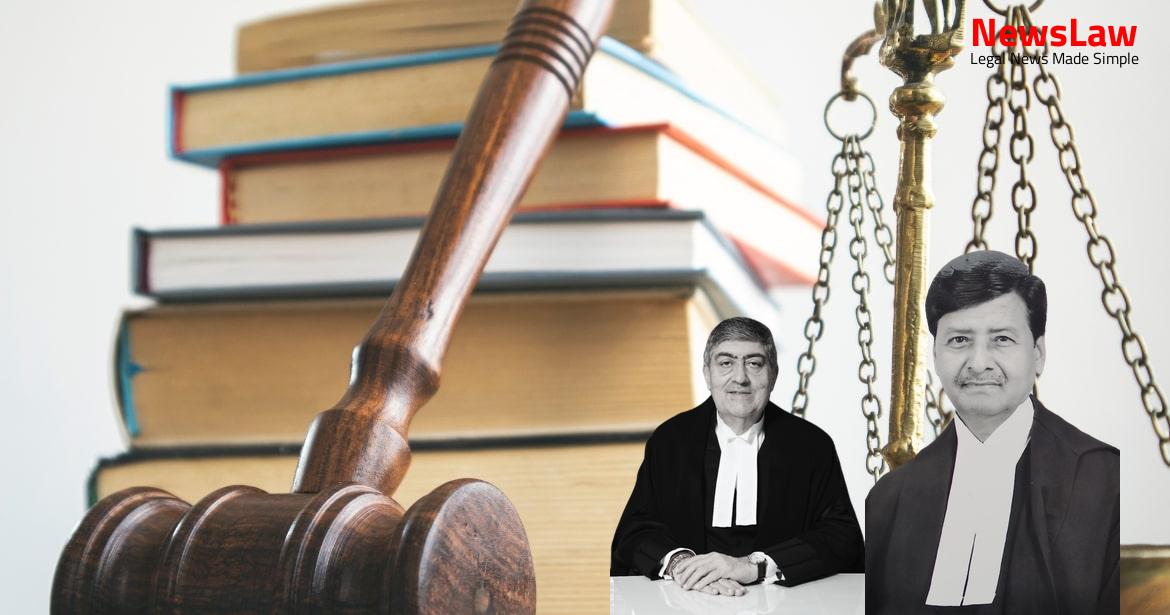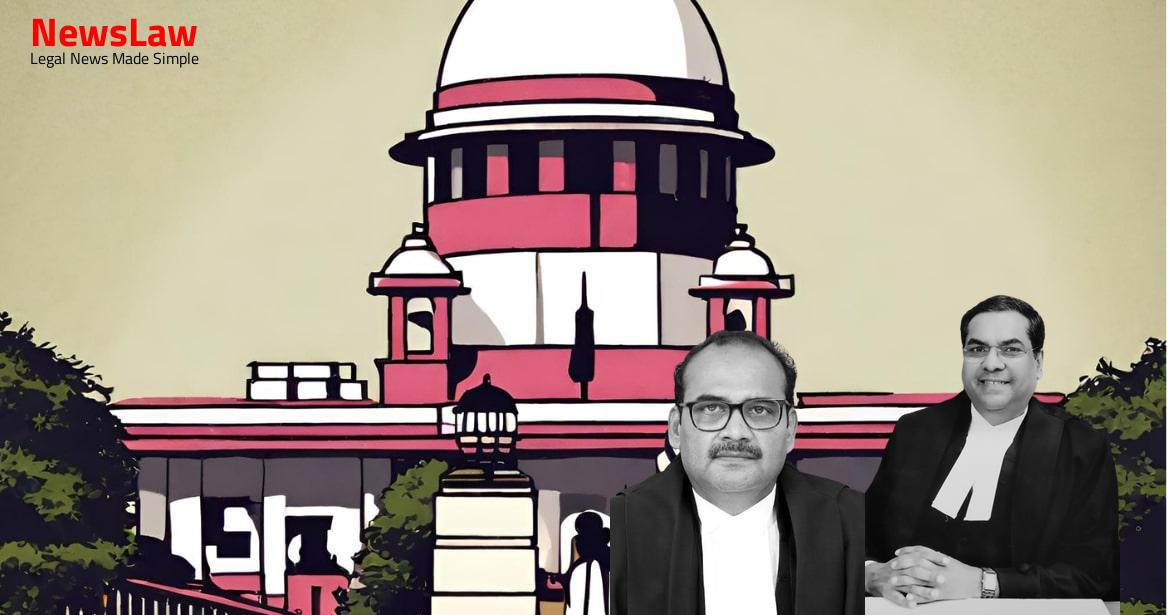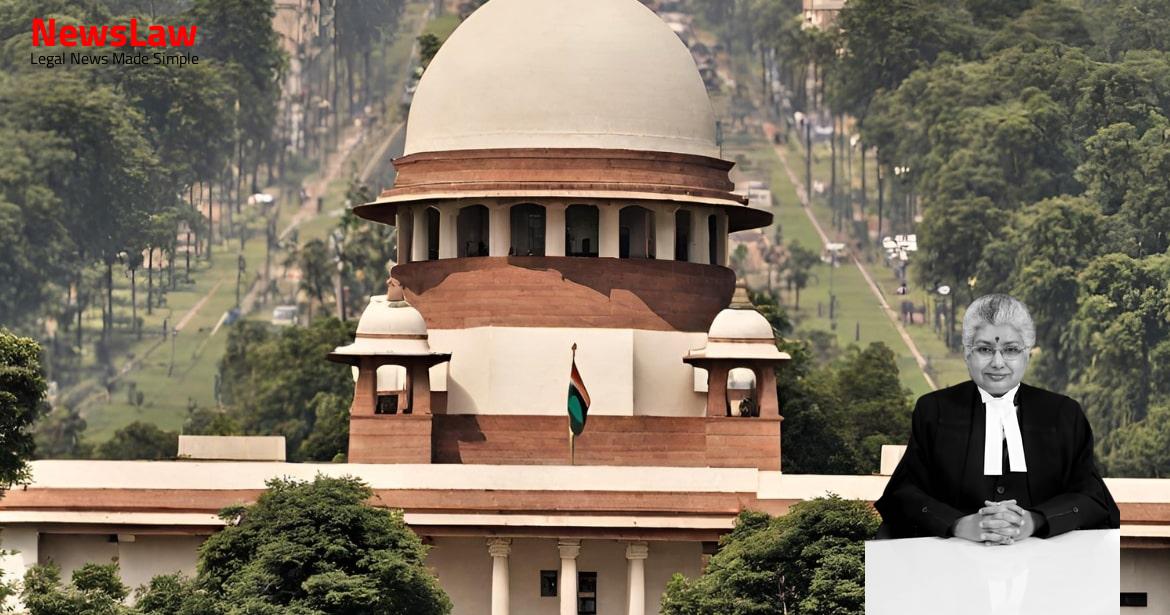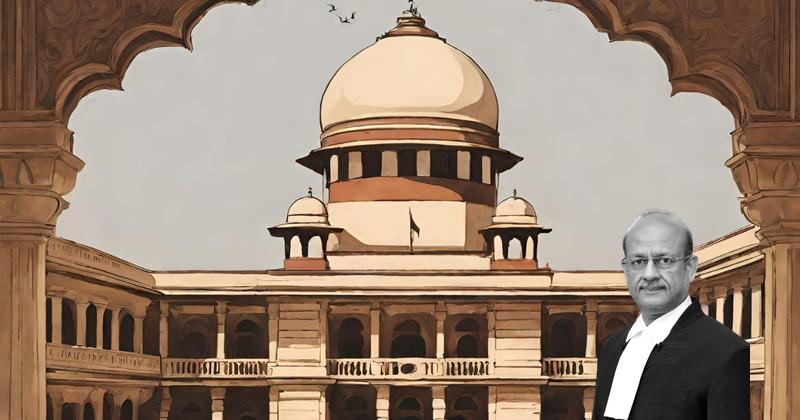In a recent legal case, the court delved into the complexities of adverse possession and title disputes. The focus was on the legal requirements for establishing adverse possession and the contradictory nature of claiming ownership while pleading adverse possession. The court emphasized the importance of specific pleadings and concrete evidence when dealing with such property disputes. Stay tuned to explore the detailed legal analysis in our blog post.
Facts
- The appeal was allowed by the impugned judgment dated 20.3.2009, decreeing the suit with costs against the legal heirs of the original defendant.
- The original defendant claimed that the property in question was sold to his wife, but the suit was filed with different measurements and boundaries to confuse the issue.
- The original plaintiff claimed that the property was given to his late brother, and the defendant was permitted to occupy it for a fuel depot.
- Adverse possession was raised as a plea by the original defendant.
- The original plaintiff countered by stating that the property was bought by his late brother’s wife, and betterment charges were paid.
- The area was acquired by the Bangalore Development Authority, and betterment charges were demanded by the Corporation from the defendant’s wife.
- The trial court dismissed the suit initially, leading to an appeal before the High Court.
- The original defendant mentioned a sale agreement in favor of his wife, and alleged attempts to lease the property out to a third party.
- Various documents and witnesses were presented by both parties during the trial.
- A partition deed was mentioned, showing ownership of the disputed land by the plaintiff and his late brother.
- Different narratives were presented by both parties regarding the ownership and possession of the property.
- The defendant’s claim of adverse possession and ownership rights over the property were the key elements of the case.
- The appellants’ plea that the original plaintiff was not the absolute owner of the property was rejected.
- The High Court affirmed that the original plaintiff and the deceased were brothers without partition, and the family continued to stay together.
- The High Court found that both Exhibit D-1 and Exhibit D-2 were unreliable due to alterations and manipulations.
- The affidavit Exhibit P-13 did not correspond with the Agreement of Sale dated 10.10.1976, leading to disbelief in the documents.
- The High Court ruled in favor of the appeal based on the appellants’ failure to prove adverse possession.
- The Court extensively discussed the requirements for a successful plea of adverse possession, emphasizing peaceful, open, and continuous possession adverse to the true owner.
Also Read: Supreme Court Judgment on Single Till Mechanism for HRAB Calculation: A Comprehensive Analysis
Issue
- The issues framed by the Trial Court were regarding the proper valuation and court fee paid by the plaintiff, description of the suit property, plaintiff’s title to the suit property, defendant’s claim of perfecting title through adverse possession by his wife, and plaintiff’s entitlement to possession of the suit property.
- The High Court findings included that the wrongful dispossession of the rightful owner must be actual, visible, exclusive, hostile, and continued over the statutory period for a cause of action to be proven.
- The High Court held that the plaintiff had established their entitlement to possession of the suit property based on the discussions and reasons provided in the judgment.
Arguments
- The suit is contested to be liable for dismissal with costs
- Learned counsel relied on four judicial pronouncements of the Court
- The mentioned judicial pronouncement cases are Karnataka Board of Wakf v. Government of India& Ors., Mohan Lal (Deceased) Thr. LRs. v. Mirza Abdul Gaffar & Anr., P.T. Munichikkamma Reddy & Ors. v. Revamma& Ors., M. Siddiq (Dead) Through LRs (Ram Janmabhumi Temple Case) v. Mahant Suresh Das& Ors.
- After examining the rival contentions, the Court concluded that they have not been interfered with
- Appellants argued that the suit was barred by limitation as the induction of the original defendant’s wife was in 1976, while the suit was filed in 1989, beyond the 12-year limitation period.
- Original plaintiff, as the karta of the family, paid betterment charges and taxes from 1985 till the date of the suit, and there was no family dispute, including with the wives of late Mr. A. Muniswamappa.
- No Agreement of Sale with possession was shown, and the suit was not amended to include the prayer for cancellation of the document.
- The burden to disprove the Agreement of Sale and General Power of Attorney shifted to the respondent once they were put on record.
- The sale of joint family property by any brother would be binding to half share, and the entire transfer couldn’t be nullified.
- The two widows of Mr. A. Muniswamappa should have been impleaded to the suit upon his demise.
- Original plaintiff and Mr. A. Muniswamappa didn’t claim possession during the latter’s lifetime, indicating legitimate possession.
- Appellants had the right to set up an alternate plea inconsistent with the main contention, citing legal precedent for support.
- Perfection of title by adverse possession could be a defense for the appellants.
- Original plaintiff proving title shifted the burden to the original defendant to establish the documents or adverse possession for perfection of title.
- Concurrent findings by both courts on the failure of the original defendant to prove the documents were questioned.
- The plea of adverse possession was considered inconsistent and not permissible for the appellants to plead.
Also Read: Selection and Appointment of Judicial Officers in Himachal Pradesh
Analysis
- Concurrent findings of the Courts below were not disturbed by the High Court’s reversal based solely on the failure to prove adverse possession.
- The appellant’s plea of adverse possession lacked specific details and failed to establish hostilities from a specific date.
- Inconsistencies in witness testimonies and discrepancies in documents discredited the appellant’s claim of adverse possession.
- The appellant’s attempt to claim ownership through various documents like Agreement of Sale and Power of Attorney were refuted due to discrepancies and lack of evidence.
- The appellate court emphasized that possession for adverse possession must be open, continuous, and hostile, which was not established by the appellant.
- Plea of adverse possession cannot be simultaneous with a claim of title as they are contradictory positions.
- The judgment cited Karnataka Board of Wakf case emphasizing the need for specific pleading of title in a property dispute.
- The absence of registration for the property’s transfer and lack of evidence supporting the bar on registration in 1976 weakened the appellant’s case.
- The court dismissed the appellant’s reliance on prior cases to support their argument, concluding that adverse possession claim was not proven.
- The judgment in Ravinder Kaur Grewal & Ors. case is concerned with whether a person claiming title by adverse possession can file a suit.
- The requirement of pleadings and proof of adverse possession as per settled law was discussed in the judgment.
- The judgment relied upon the case of Mohan Lal (Deceased) Thr. LRs. for guidance.
- It was emphasized that proper documentation and evidence of adverse possession are essential for such claims.
- Specific pleads and proof required for possession to become adverse in order for the real owner to lose title after 12 years
- Appellants cannot advance plea of title and adverse possession simultaneously from the same date
- Conclusion that the appeal is meritless and dismissed with costs
- Time granted to the appellants to hand over possession of the property by 31.12.2020 upon furnishing usual undertaking within four weeks
Decision
- Relief of possession to the original plaintiff was declined
Case Title: NARASAMMA Vs. A.KRISHNAPPA (DEAD) THR. LRS. (2020 INSC 509)
Case Number: C.A. No.-002710-002710 / 2010



